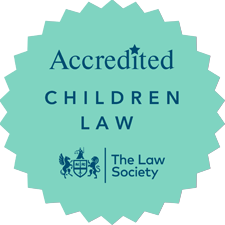What the 2024 Family Justice Council Guidance means for future Court cases
Over recent years, the term Parental Alienation has become increasingly common, especially within Court proceedings relating to children. Allegations of alienating behaviours are often (but not always) raised by a parent accused of domestic abuse. Cross allegations of abuse/alienation tend to lead to complicated, costly, protracted proceedings, with heightened acrimony between parents.
Parental Alienation is a term that refers to one parent intentionally or unintentionally turning a child against the other parent. This can include behaviours such as making negative comments about the other parent, limiting contact, or even outright denying access. The effect on children can be severe, as it may cause emotional harm and disrupt the child’s relationship with one of their parents.
In November 2024, the Family Justice Council (FJC) released new guidance as to how the Courts should address Parental Alienation. This is a significant update because, until now, Parental Alienation was often a controversial and misunderstood issue in family law cases. With the updated guidance, the legal system is now placing more focus on identifying and addressing this problem.
What is Parental Alienation?
It is important to understand what Parental Alienation looks like in practice. It can take various forms, but it generally involves one parent influencing the child to reject or distance themselves from the other parent. Sometimes this behaviour is intentional, while other times it may be the result of conflict, when one parent’s frustrations and worry lead them to undermine the other parent.
Some common signs of Parental Alienation can include, but are not limited to:
- A child refusing or being resistant to see or talk to one parent without a clear or logical reason.
- A child making negative statements about a parent that are unusual for their age or development.
- One parent preventing or limiting the other parent’s contact with the child, with a valid reason, for example, welfare concerns.
What the 2024 Family Justice Council Guidance means:
The guidelines provide clearer directions as to how Courts should address Parental Alienation in family cases:
- Recognising Parental Alienation Early. One of the most important aspects of the new guidance is the emphasis on identifying Parental Alienation early in proceedings. In the past, alienation claims were sometimes overlooked, or the issue would not be acted upon until the problem had become severe. The guidance encourages professionals, such as Judges, Social Workers and CAFCASS officers, to spot signs of alienation early on and intervene as soon as possible to prevent long-term damage to the child.
- The Role of experts. The guidance stressed the importance of involving experts to asses the impact of Parental Alienation on a child. In the past, Court’s may have been reluctant to use expert testimony, but now it is clearer that expert advice on the emotional and psychological health of the children involved in these cases can help inform decisions.
- Parental Responsibility and Cooperation. The new guidance underlines that both parents should share the responsibility of promoting the child’s relationship with the other parent. Courts will take a much harder stance on parents who intentionally or even unconsciously encourage alienation when determining matters such as which parent the child should live with and the time they should spend with the other parent.
- The Best Interests of the Child. The welfare of the child is the Court’s primary concern. The guidance reminds Courts to consider the child’s feelings, but it also stresses that children may not always express their true feelings due to the alienating behaviours of one parent. Judges will need to look carefully at the dynamics within the family to see if the child’s rejection of the other parent is truly their own desire or if it is a result of manipulation.
- Potential Consequences for Alienating Parents. The guidance also makes it clear that if a child is found to have been alienated from a parent, the Court may order therapeutic interventions, such as counselling for the child and parents, enforce contact arrangements to repair and rebuild the relationship between the child and the alienated parent. In extreme cases, and considering the impact upon a child, the Court may consider a change in the child’s residence and/ or, consider supervised contact for an alienating parent with a child.
How This Will Impact Future Court Cases:
Parents who attempt to alienate the other parent will now face stronger consequences and will be required to take accountability for their actions. The Courts will place an emphasis on spotting alienation early, so the matter can be addressed before it escalates, leading to faster and effective resolutions.
The guidance provides for a more child centred approach, focusing on the child’s best interests, ensuring their emotional needs are considered while preventing harm caused by parental conflict.
Courts may be more likely to order counselling or parenting courses for families involved in these types of cases, as the guidelines stress the importance or repairing relationships and improving communication.
What does this mean for parents?
The new guidance underscores the importance of fostering a positive relationship between your child and the other parent. If you believe a child is being alienated from you it is important to document any examples and seek professional advice.
For parents who might find themselves accused of alienation, it is crucial to be aware that the Court will scrutinize your behaviour.
It is important for parents to recognise that the Court’s role is not about choosing sides, but for the Court to consider a child’s wellbeing, with a proactive and child-centred approach to any allegations of Parental Alienation.
The Courts have always focussed on the best interest of children, however these updated guidelines aim to address the harm caused in a more structured way, by recognising and tackling these allegations early, in the hope this will protect the emotional health of children and ensure that both parents can have and maintain a fair chance of a meaningful relationship with their children.
The full guidance can be found at:
If you or anyone you know has any concerns in respect of their spending time with their children, or are concerned that there may be signs of alienation, please contact the Domestic Violence and Abuse Department (DVAD) for expert advice, either by clicking on the links, or by telephoning Johnson Astills on 0116 255 4855.








